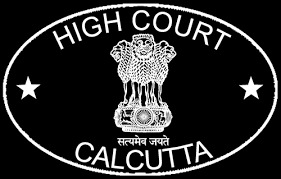K. Kannan, J.@mdashThe petition challenges the order passed by the Sub-Divisional Magistrate, Khanna purporting to dispose of the appeal filed against the levy of Rs. 39,400/- alleged to be the amount payable by the petitioner for what according to the respondents was on the basis of a report of A.E. Gobindgarh that it was a case of theft of energy. The initial order has calling upon the petitioner to pay Rs. 39,400/- had been passed on 29.04.2008 setting out the following reasons:
1. Load checked is...Kilowat whereas the sanctioned load is 6.170 KW.
2. Due to functioning/running of motor on single phase.
3. As per report of M.E. Gobindgarh, this is a case of theft.
4. Apprehended on the spot while making theft by making bye-pass of meter/by making vertical/by tampering.
5. Generator set has been made to function without approval. Its approval be obtained.
6. Fitting of your motor is not in order. Earthing is not proper. After setting it right, test report be furnished.
7. Set-Compressor is out of order/not provided.
2. The first portion of this order states that the connection checking had been checked by the A.E. Gobindgarh and a sum of Rs. 39,400/- was to be deposited in office within a period of 15 days from the date of despatch of the letter. The letter also warns the petitioner that in the event of failure to deposit the sum, action in accordance with rules would be taken.
3. Taking this notice as an assessment made u/s 126 of the Electricity Act, 2003 (for short, "the Act"), the petitioner preferred an appeal to the Appellate Authority namely the District Sub-Divisional Magistrate. The provision for an appeal is contained in Section 127 of the Act, which allows a person who is aggrieved by the final order made u/s 126 of the Act to be appealed within a period of 30 days. The provision u/s 127(2) requires as deposit of an amount not less than half the assessed amount (amended as half by Act 26 of 2007 w.e.f. 15.06.2007). The impugned order rejected the appeal stating that all the facts were considered and that the case related not to "unauthorized use of electricity" as defined u/s 126 of the Act and, therefore, the appeal was not competent. The dismissal of the appeal was on a reasoning that the case amounted to theft and the remedy shall not be by way of an appeal before the Appellate Authority. In my view, the reasoning contained in the impugned order is wholly untenable.
4. The unauthorized use of electricity is defined u/s 126(6)(b) as follows:
(b) ''unauthorized use of electricity'' means the usage of electricity -
(i) by any artificial means; or
(ii) by a means not authorized by the concerned person or authority or licensee; or
(iii) through a tampered meter; or
(iv) for the purpose other than for which the usage of electricity was authorized; or
(v) for the premises or areas other than those for which the supply of electricity was authorized.
5. An inspection by the A.E. (M.E.) Gobindgarh is reported to have yielded detection of several defects, which we have already extracted above. They fall within Clause (iii) and (iv) above. It could just as will be a case of theft, but although defined u/s 135 of the Act, if the Electricity Board were taking an action for recovery of Rs. 39,400/- and demanding the sum to be paid within 15 days, the petitioner was entitled to assume that the Electricity Board was treating the case as an order of assessment u/s 126 and was justified in preferring the appeal. The learned counsel appearing for the Electricity Board argues vehemently that Section 135 of the Act deals with theft of electricity and it is a different offence and the appeal filed before the Authority was not competent at all. According to her counsel that even otherwise, it was not merely a summary dismissal of the appeal but it was a disposal on merits and the petitioner cannot have any grievance.
6. The argument that Section 135 deals with a different situation and mutually exclusive to a case of unauthorized use of electricity does violence to the provisions of the Act itself. Section 135 of the Act details different situations of theft which includes, under Clause 1(d) a person who "uses electricity through a tampered meter" and under Clause 1(e) "uses electricity for the purpose other than for which the usage of electricity was authorized". A tampering of a meter or the user, which was other than what was authorized, in my view, still qualify for an unauthorized use of electricity, which is contemplated u/s 126(6)(b) of the Act. Even it were to be taken that case what was one of the theft, the nature of penalty that Section 135 contemplates is an imprisonment for a term exceeding 3 years or with fine or with both. The provisions relating to offences and penalty in Part XIV set out that the offences are cognizable, u/s 151. Section 151(A) gives the power to the police to investigate the same in the manner provided by Chapter XII of Criminal Procedure Code. The procedure involves prosecution in a Special Court and the procedure and power of the Special Court are detailed u/s 154. After making a demand of an amount as payable, it would be futile for the Electricity Board to contend that Section 126 itself contemplates a response in a week''s time which the petitioner did not avail of and hence the remedy by way of appeal to be barred. I cannot see the notice issued on 29.04.2008 as a provisional assessment at all. The provisional assessment ought to be read as such and provide for the time as prescribed under the Act for making the payment and also to give an opportunity it to explain why action should not be taken in the manner contemplated under the Act. The demand that reads as final assessment could only always be assailed by an aggrieved party by an appeal as contemplated u/s 127 of the Act. That was the procedure which the petitioner had adopted.
7. The impugned order does not spell out any consideration of fact. Such an argument is also not appropriate, for the order merely expatiates on what the authority believed to mean "unauthorized use of electricity" and how it was different from "theft" as contemplated u/s 135 of the Act. The provision for an appeal u/s 153 which the Sub-Divisional Magistrate was making a reference to as the impugned order was also clearly untenable, for there could not have been an appeal u/s 153 when no prosecution was laid in the manner as contemplated under Part XIV of the Electricity Act. The impugned order is quashed and remitted to the Sub-Divisional Magistrate, who will take up the appeal and dispose it off as one filed u/s 127 of the Electricity Act. It is stated that at the time of preferring the appeal, 1/3rd of the amount of demand was deposited. I notice that the law has undergone a change in 2007 requiring a deposit of not less than one half of the amount assessment. If the petitioner makes good the loss, the same shall be received and appeal shall be heard and dispose of on merits.
8. The writ petition is allowed on the above terms.

